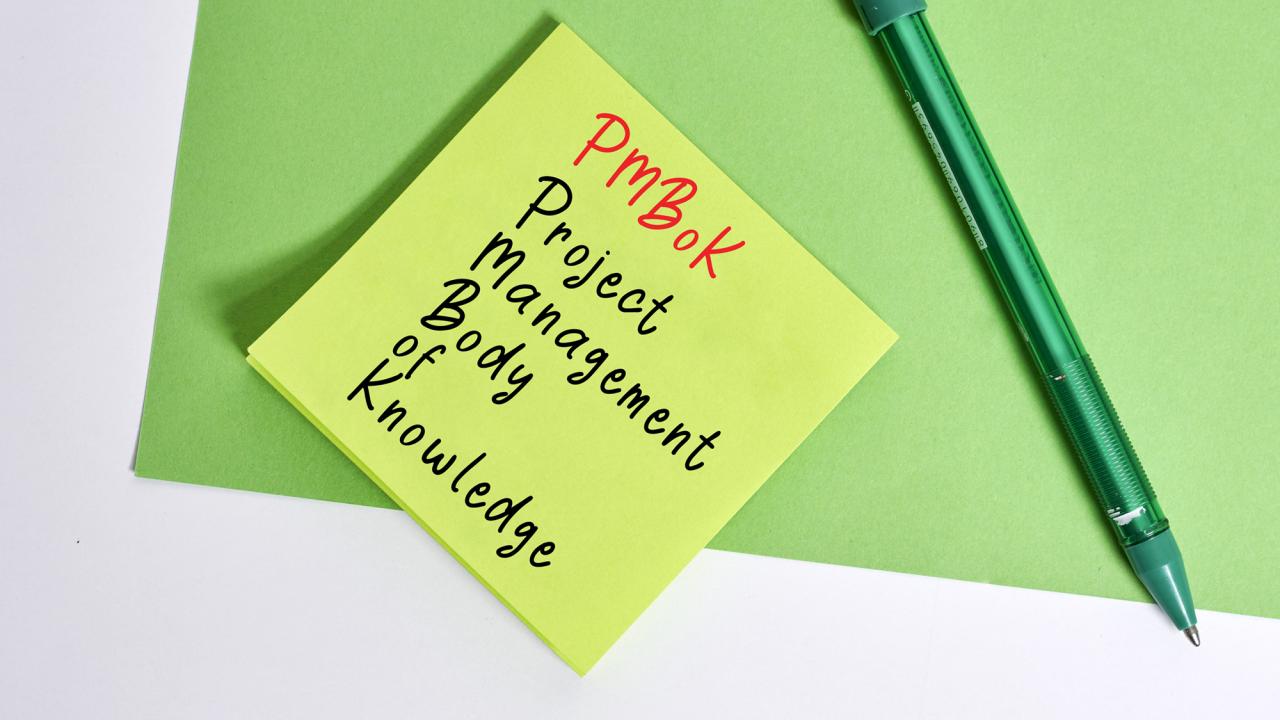
PMBOK® 6 to 7: Do I need to unlearn everything?
The PMBOK® Guide – Seventh Edition is now available. We reached out to Tony Oliver, a highly experienced PMP® credential holder and instructor in the UC Davis Continuing and Professional Education (CPE) Project Management Certificate Program, for a synopsis on the latest edition.
This is not the first time the PMBOK® has changed. In fact, six other editions predate the current release. Since the original publication in 1996, the field of project management has evolved, and the guide has reflected these changes. Constant revision is not just desired, but rather required: after all, you wouldn’t want to receive care from a doctor who has not kept up to date with the newest medical advances or seek guidance from a lawyer who is not aware of new laws.
The “guide” comprises two elements: the Standard for Project Management and the Project Management Body of Knowledge, but colloquially they are referred to as the PMBOK®. While both halves should be seen as the foundation, they are not designed to be the sole resources on project management. PMI® also publishes practice guides, standard guides and bodies of knowledge which cover other topics in greater detail. Comprehension of risk, schedule and cost—among other elements— hinge on mastering the concepts expanded upon in these companion volumes. The Managing Project Risk and Integration course, for instance, relies heavily on the Standard for Risk Management in Portfolios, Programs, and Projects.
Prior to the sixth edition of the PMBOK®, PMI® was criticized for ignoring the rise of the Agile (or iterative) model of project management. While the methodology is commonly connected to software, other industries, such as education, also use it. The seventh edition addresses another common complaint by shifting the focus to the product (good or service) being delivered by the project, rather than how to run the project. This doesn’t subjugate the process but rather elevates the goal. Ultimately, a project is only successful if it meets the customer’s specifications and if the product is adopted by the intended audience. Your customers value your charter, plan and other documents not by themselves but rather by the value they provide toward achieving the project goals.
Aspiring project managers were sometimes daunted by the complex and dense language of the PMBOK®. The seventh edition is more user-friendly, removing some of the longer, drawn-out and text-heavy explanations with illustrations that better focus on the reader.
Current and aspiring students of CPE’s Project Management Certificate Program should be mindful of the program’s goal. While PMI® is indeed the leader in project management organizations and the PMBOK® is its foundational standard, our courses combine elements from various project management methodologies and resources, seeking the very best among them to provide a comprehensive, multi-disciplinary education of project management that applies to any industry.
Learn More
If you are interested bringing a half-day or full-day course on the PMBOK® 6 vs 7 transition to your organization, email us at satamura@ucdavis.edu.
If you are actively practicing for the PMP® certification test, become familiar with the exam content. Not only does it provide guidance on the estimated distribution of questions among the topics; it also details how the questions were crafted and validated. The certification validates your mastery of the subject by ensuring you can apply the knowledge rather than just recite it. The questions themselves prompt reflection and pause as you determine how to address the situation described.
Current project managers ought to become familiar with both the current and prior versions of PMBOK®. In the past, the “new” version would supersede the prior and have a summary of changes. In the transition from the sixth to seventh edition, it is more nuanced. Think of the what, the why and the how. I personally have both side by side as I revise and teach my courses.
The transition from the sixth to seventh edition was hampered by the global pandemic, but roughly a year after its release, we should all take heed of Plutarch’s quote: “The mind is not a vessel to be filled, but a fire to be kindled.” Other revisions will surely follow, and they will collectively improve our project management expertise. Credential-holders must maintain their certification by demonstrating they have kept current on project management topics.
About the Author
Tony Oliver has two decades of experience in a variety of roles, including project manager, business analyst and change management specialist. Leveraging his project management and Six Sigma certifications, he is currently a senior manager with Aetna, a CVS Health Company, and has experience as a peer and career advisor and mentor.
